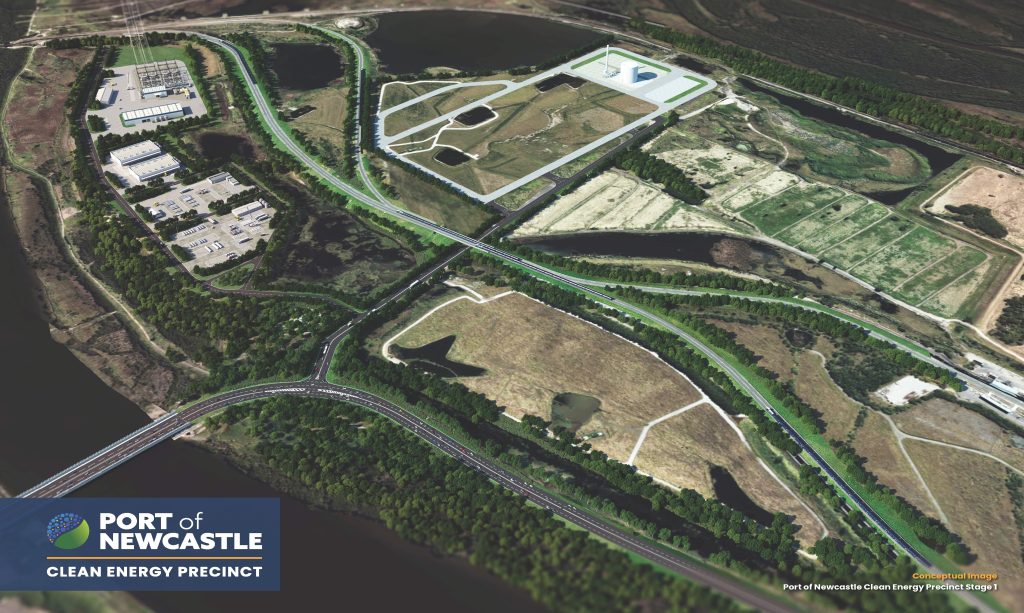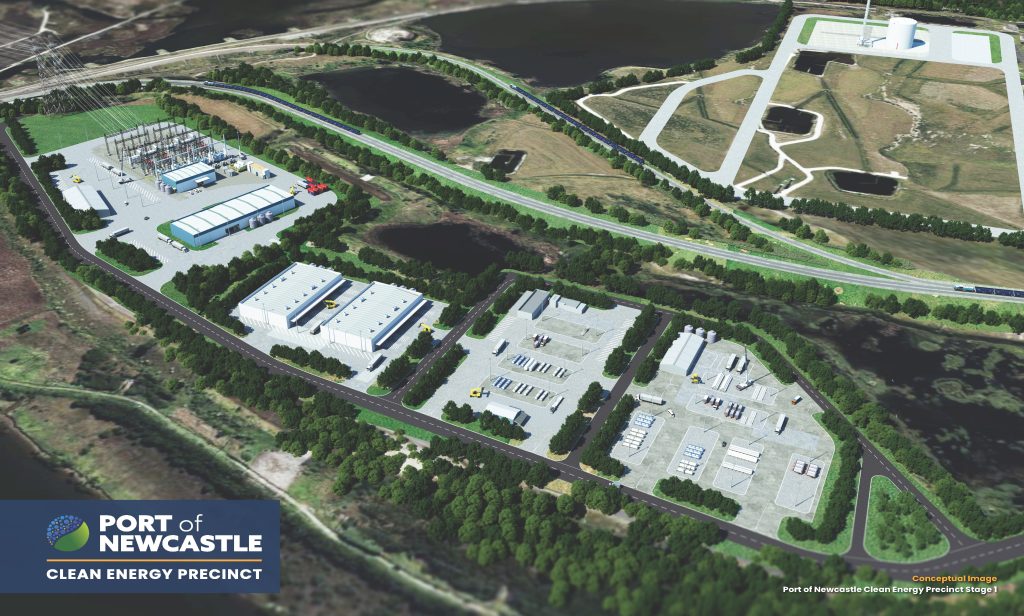
The Port of Newcastle has unveiled concept designs for the first stage of its future Clean Energy Precinct today.
A 220-hectare parcel land on Kooragang Island has been earmarked for the development and storage of hydrogen and green ammonia.
The Port is one of the state’s dedicated hydrogen hubs and has been working to accelerate plans for hydrogen readiness, domestic decarbonisation and clean energy exports over the last two years.
Stage 1 of the Clean Energy Precinct Project development includes ancillary and civil works including site buildings, internal roads, warehousing, staging areas and a clean energy storage facility with associated pipeline infrastructure. Electrical, water and waste water infrastructure will also be installed.

CEO Craig Carmody said bringing the Port’s plans to life visually for the community marks a significant milestone for the project.
“This project positions us for the future, providing a once in a generation opportunity to reshape the Hunter region’s energy economy and drive the development of new trade flows and industries of the future,” Mr Carmody said.
“Through the Clean Energy Precinct, Port of Newcastle will support all hydrogen, and clean energy projects in the Hunter by providing land, utilities, storage, transport and export infrastructure and services – in turn generating over 5800 jobs, new educational pathways and expanded economic growth.”
Mr Carmody was joined by Federal Newcastle MP Sharon Claydon and Clean Energy Precinct lead and Port of Newcastle Chief Commercial Officer Simon Byrnes today to showcase three visual conceptual renders of Stage 1 of the landmark project, which has received a $100 million Commonwealth Government funding commitment.
Sharon Claydon, said Port of Newcastle’s clean energy diversification safeguards the region’s legacy and future as an energy provider, both domestically and internationally.
“Positioning Newcastle as a clean energy hub will ensure we continue to do so for generations to come. The Albanese Labor Government’s $100 million commitment to the Port and investment in Fee-Free TAFE and New Energy Apprenticeships will ensure the Hunter’s skilled workforce can take full advantage of new energy jobs.”
Project lead and Port CFO, Simon Byrnes, said the Clean Energy Precinct will leverage economies of scale by co-locating hydrogen producers, users and exporters in one location, whilst shared infrastructure will drive down the cost of hydrogen.
“The establishment of Stage 1 of the Port’s Clean Energy Precinct would enable future production, storage, distribution and export of clean energy types for further development stages, including green hydrogen and green ammonia, using common user infrastructure,” said Mr Byrnes.
Pending planning approvals, construction on Stage 1 is expected to get underway in 2025, with the Port aiming to have the Clean Energy Precinct fully operational in 2028.

